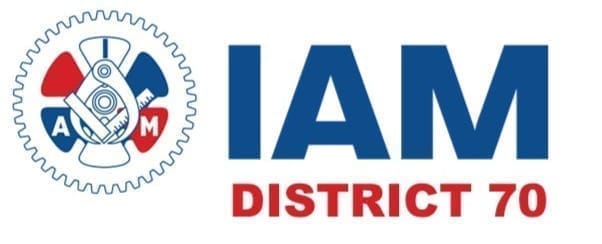Ahead of today’s high-level meeting between the U.S. and 13 Indo-Pacific nations, more than 100 civil society organizations urged the Biden administration to increase transparency and public participation in the Indo-Pacific Economic Framework (IPEF) as talks heat up.
IPEF is expected to be the most consequential trade initiative of the Biden administration and is being proposed at a time when voters are increasingly skeptical of trade deals. The organizations – representing a broad swath of labor, environmental, human rights, faith, family farm, and consumer organizations – warned the deal could be viewed in the same light as the unpopular Trans-Pacific Partnership (TPP) if it is drafted in a manner that bars the public from reviewing negotiating texts, while corporate advisors maintain access.
“The IAM will continue to fight for a fair trade policy that puts workers first,” said IAM International President Robert Martinez Jr. “IAM members have felt the hardships from trade policies that give corporations the upper hand while they offshore our jobs. “The IPEF needs to include binding and enforceable labor and environmental standards. We have an opportunity to create a trading strategy that builds upon the U.S. labor and environmental laws. Now is not the time to turn our back on our nation’s workers.”
Signers of the letter include the American Federation of Teachers, Amnesty International USA, Citizens Trade Campaign, Communications Workers of America, Government Accountability Project, Greenpeace USA, International Association of Machinists and Aerospace Workers, International Brotherhood of Teamsters, National Family Farm Coalition, National Organization for Women, Partners In Health, Public Citizen, Rethink Trade, Sierra Club, Trade Justice Education Fund, United Steelworkers and many others.
The groups urged the administration to replace the corporate advisory system with an on-the-record public process, including public hearings, to formulate U.S. positions and obtain comments on the draft and final U.S. text proposals, as well as consult and engage with Congress throughout the process.
“One of the fundamental reasons why the TPP became so unpopular was that it was negotiated under the influence of hundreds of corporate advisors while the public and Congress were locked out,” the letter said. “Terms needed for the deal to benefit most Americans were traded away in favor of special protections for the corporate interests that had access.”
“We share your goal of creating a new model for U.S. trade policy that prioritizes the interests of working people, communities of color, the environment, consumers, and family farmers instead of just big corporations,” the letter said. “A transparent and participatory negotiating process is critical to ensuring the best possible outcomes from IPEF or any other future trade negotiations.”
A full copy of the letter and its signers is available at: bit.ly/IPEFTransparency
The post 100+ Civil Society Groups Ask White House for Transparency in IPEF Deal appeared first on IAMAW.
